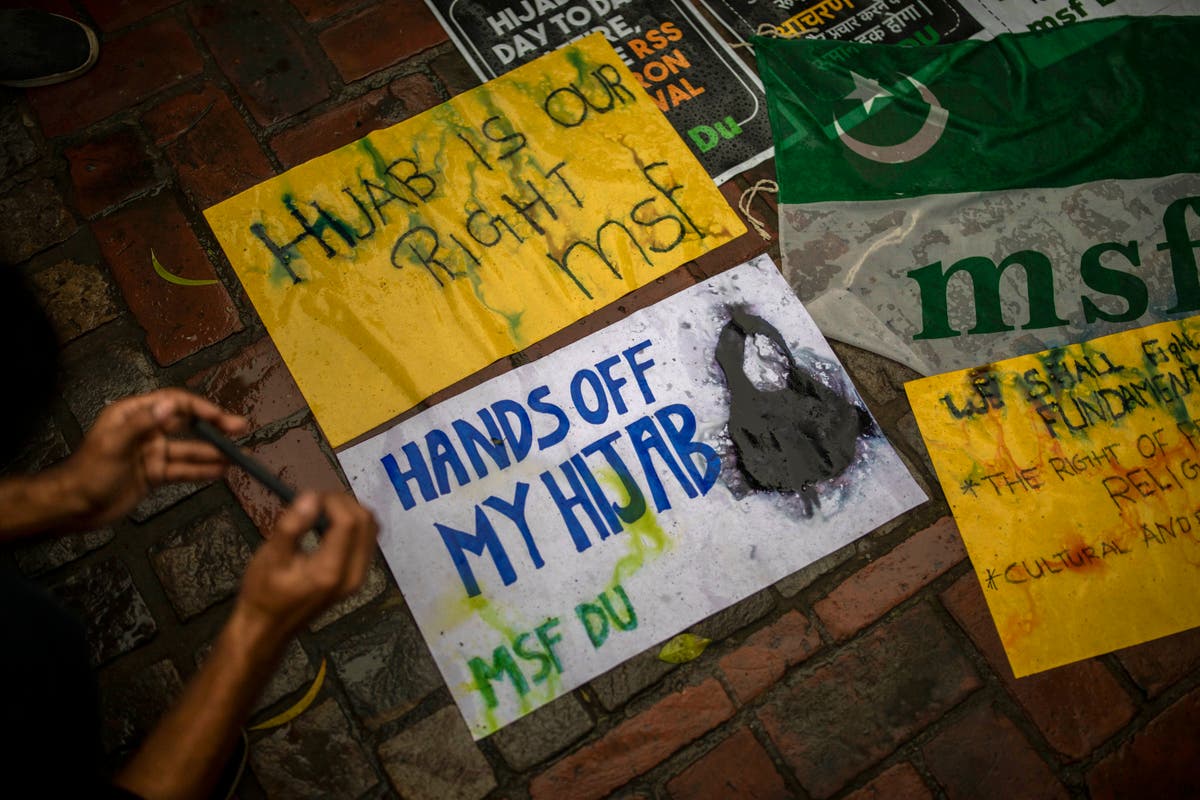
An Indian court on Tuesday upheld a ban on hijabs in schools and colleges in the southern state of Karnataka, an order that several activists and citizens slammed as “disappointing”.
The Karnataka high court dismissed the five petitions that had been filed by dozens of students against the ban on hijabs in schools and colleges.
The students said in their petitions that wearing the hijab was a fundamental right guaranteed under India’s constitution and essential practice of Islam.
Chief Justice Ritu Raj Awasthi of the Karnataka High Court upheld the ban and said in Tuesday’s ruling: “We are of the considered opinion that wearing of hijab by Muslim women does not form a part of essential religious practice.”
The court held that hijab is a matter of attire and cannot be treated as fundamental to Islamic faith.
“..It can hardly be argued that hijab being a matter of attire, can be justifiably treated as fundamental to Islamic faith. It is not that if the alleged practice of wearing hijab is not adhered to, those not wearing hijab become the sinners, Islam loses its glory & ceases to be a religion,” said the order as quoted by the legal news website LiveLaw.
The court added that at the most the practice of wearing hijab “may have something to do with culture but certainly not with religion.”
The court concluded that: “Prescription of uniform a reasonable restriction to which students cannot object.”
The controversy began on 28 December after a government college in the state’s Udupi district banned students from wearing the traditional Muslim headscarves inside the classroom.
Six students of the school resisted the ban and were denied entry, who then proceeded to protest the ban by sitting outside the classrooms.
The issue soon snowballed into a face-off between right wing groups and Muslim women wanting to wear hijabs as other colleges in the state also enforced similar bans.
Last month, the court had said in an interim order that students should not wear religious clothes in colleges until it has reached a verdict on the matter.
The next day, India’s Supreme Court also refused to intervene in the matter and said that it would only take up the matter at an “appropriate time.”
On 5 February, Karnataka banned “clothes that were against law and order”.
Ahead of the order on Tuesday, authorities in Karnataka had announced bans on gatherings along with closure of schools and colleges as preventive measures, anticipating trouble after the pronouncement of the order.
The ruling led activists and citizens to take to social media to say that the order was another example of denying democratic freedoms to India’s Muslims.
Opposition political leaders also criticised the judgement and termed it as “suspension” of India’s fundamental rights.








